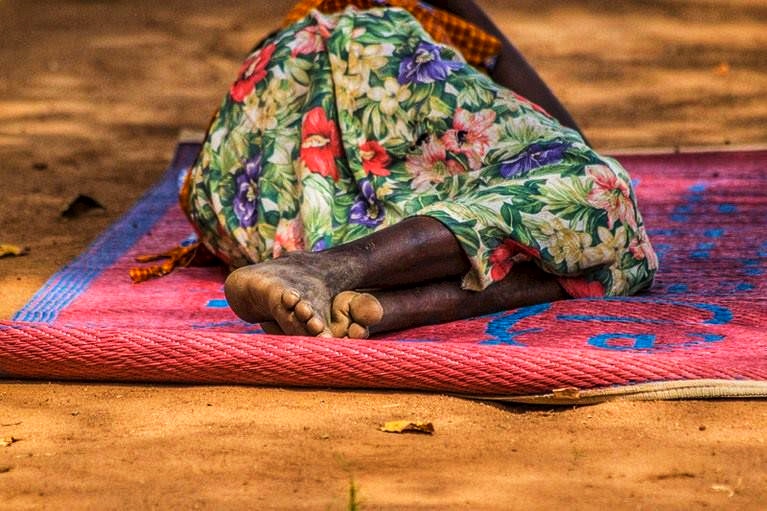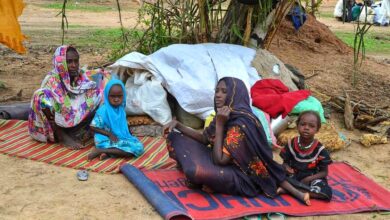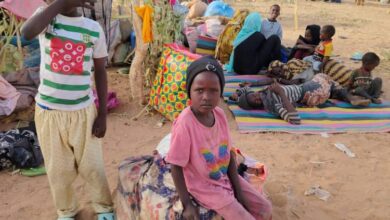Victims of Sexual Violence in Sudan… Silent Pain Behind Isolation
Mashawir – Agencies

The displacement camps and shelters in safe Sudanese states hold hundreds of harrowing stories of psychological, physical, and sexual abuse endured by young girls during the current war in Sudan.
These stories were once hidden, unspoken—until efforts to assist and treat victims in specialized centers began to reveal the horrifying extent of the crimes committed. Many survivors still await treatment, silently battling their trauma and living with the painful secrets of the injustices inflicted upon them before they were able to flee to safer regions.
Aid and Treatment
The Federal Ministry of Health, in collaboration with relevant government agencies and several anti-violence and anti-rape organizations, has begun intensive work in shelter centers to help survivors overcome their trauma. Health sources explained that all support and assistance centers operate under the Ministry of Health’s referral program, which emphasizes confidentiality and privacy in handling disclosed cases.
Sources added that several organizations, in coordination with the United Nations Population Fund (UNFPA), are providing care and support to survivors, including KAFA, the Near East Foundation, and Plan International. However, these organizations do not have branches in all states, meaning that other entities are needed to cover the remaining areas.
Hundreds of Cases
The Ministry of Health and Social Development in Gedaref State revealed that 90% of the displaced women in the state’s shelter centers require intensive psychological treatment. The state’s forensic medicine center has recorded hundreds of sexual assault cases, mostly involving survivors of the war, with instances of suicide and severe trauma among rape victims. The Ministry’s Women’s Violence Unit has begun offering psychological and social support services while strictly maintaining privacy.
Gedaref’s Central Hospital forensic center registered 342 sexual assault cases in the recent period, most involving displaced survivors, according to forensic specialist Dr. Abdelrahim Mohamed Saleh.
Extreme Violence
The acting Minister of Health and Social Development, Ahmed Al-Amin, highlighted during a workshop in collaboration with Plan Sudan that several centers provide medical, psychological, and social support to rape survivors, including the Trauma Center at Gedaref Hospital, the Women’s and Maternity Hospital, and the Forensic Medicine Department, in addition to centers in Abu Al-Naja, Umm Shajirat, and the American field hospital. The Ministry’s Women and Child Violence Unit also offers services.
Al-Amin stressed the importance of intensifying community efforts to remove the stigma and urged survivors of sexual violence to seek treatment, noting that customs and traditions remain one of the biggest challenges in addressing violence against women and children.
The state’s public prosecution also revealed that most reported rape cases involved excessive violence. In many incidents, the perpetrators remained unidentified, partly due to the use of face coverings known as “Kadmoul.” The prosecution withheld the official report numbers.
Fear and Ignorance
Reproductive health specialist Doha Suleiman Idris confirmed that sexual violence was used as one of the dirtiest and most exploitative weapons of war, as shown by current statistics, which only reflect reported cases. The actual number of unreported cases is believed to be significantly higher.
Idris explained that cultural and social factors hinder reporting and access to the proper authorities, especially due to fear of societal stigma, which remains a major obstacle.
She also highlighted that many survivors’ families are unaware of how to reach the proper authorities to seek justice and treatment. This calls for more support and awareness campaigns through media to inform communities about available services for survivors of sexual violence and the processes to access them through state health ministries and both public and private medical institutions. These services should be delivered by trained professionals in coordination with the judiciary and police departments to ensure proper reporting and referral of cases.
Efforts and Challenges
Idris emphasized the importance of survivors feeling reassured that these services are provided with full discretion and privacy, including psychological and social rehabilitation.
However, the shutdown of several service centers and the lack of trained professionals to deal with such cases remain significant challenges amid the ongoing war.
In a related context, UNFPA representative in Sudan, Mohamed Al-Amin, stated that 42 centers across Sudan are working to assist victims, including in volatile areas near and around El Fasher. These shelters help women and girls stay in safe environments where they can access health, psychological, and social services, in partnership with UN, international, and local NGOs.
Al-Amin said the UNFPA, along with 41 other partners inside Sudan, has provided psychological, medical, clinical, and social support to many survivors who had lost hope and even attempted suicide. He told the United Nations Magazine that these shelters help women regain a semblance of normal life through the support of peer groups that boost their morale.
Severe Conditions
Social psychology expert Badr El-Din Marhoum explained that many displaced rape and sexual violence survivors live under intense psychological strain. Some were driven to suicide due to trauma, depression, and fear of a stigmatized, uncertain future. He stressed the need to combat societal stigmatization and encourage survivors to access psychological and medical support services.
Marhoum believes the actual figures may be significantly higher than the reported ones, due to the lack of field monitoring teams and the sensitivity of the subject. Many survivors do not report their experiences due to fear of more violence in conflict zones. He added that fear of social disgrace is a major barrier to collecting accurate data on wartime rape, especially in Sudan’s conservative society, which places a high value on virginity, honor, and family reputation—factors that compound the psychological burden on victims.
Lingering Effects
Marhoum also noted that some victims were blackmailed by armed men who filmed the assaults, adding to their silence and reluctance to seek help. Some families also chose to handle the matter privately at the expense of the victim’s rights. He highlighted that cases involving pregnancy led some survivors to abandon their children, with profound emotional and social consequences for the mothers.
Despite the Ministry of Health and various organizations working under difficult conditions since the war began to document cases and provide psychological and medical support, Marhoum emphasized that the primary responsibility lies with society as a whole, alongside health and legal institutions, within a comprehensive national recovery program. The sexual and physical violence inflicted could have long-lasting effects on both survivors and the broader community for years to come.
Widespread Issue
UN estimates from two years ago indicated that around 3 million women and girls in Sudan were at risk of gender-based violence—even before the current conflict began. That figure rose to 6.9 million in 2024.
The “Together Against Rape and Sexual Violence” campaign, led by Sudanese volunteers to prevent the use of sexual violence as a weapon of war, stated that current official figures are significantly lower than expected due to limited access to services, lack of reporting mechanisms, and the culture of silence and societal shame surrounding sexual violence during conflicts in Sudan.
A UN fact-finding mission reported that the Rapid Support Forces (RSF) were responsible for widespread sexual violence in areas under their control, including mass rape, abduction, and the detention of victims under conditions that amount to sexual slavery. The UN Human Rights Commission attributed around 70% of sexual violence crimes to armed men in RSF uniforms.




